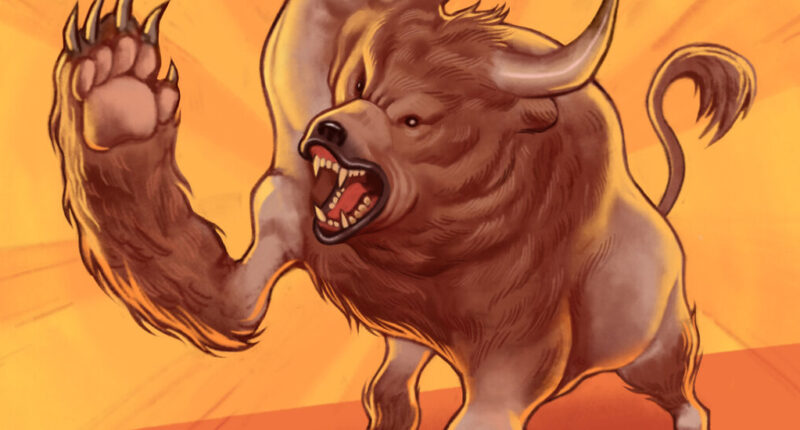
Wall Street makes money by being bullish. It profits when people pour their savings into stocks.I’ve pointed out that the annual Wall Street forecasts are wildly inaccurate, usually, by being overly optimistic.
But after major market declines in bear markets, like the one in 2022, they are often excessively pessimistic. In December 2022, the median Wall Street forecast was for the S&P 500 to end 2023 at 4,009, but the market is a lot higher than that now. As they often do in midyear, when their forecasts are off the mark, investment firms are belatedly raising their forecasts. Goldman Sachs did that on June 9 in a note to clients saying, “We raise our S&P 500 year-end price target to 4500 (from 4000), representing 5% upside.”
Further bullish revisions by Wall Street firms are likely. But that doesn’t mean much. The forecasts will be revised downward if the market falls sharply. The fact that the market has risen doesn’t mean it will keep rising — unless investors start to believe it will and act on that bullish belief, and propel the market ever higher. A bull market based on emotional enthusiasm and not backed by rising earnings can easily become a bubble.
A History of Fuzzy Metaphors
Bulls and bears and bubbles have been ambiguous metaphors for centuries. These vivid but imprecise terms were popularized by great writers — and miserable investors — in the 18th century.
Alexander Pope, the poet, satirist and hapless investor, talked about bulls and bears in 1720 to describe his hopes for South Sea Company stock, while it was still zooming up in price — and before it became infamous as the disastrous South Sea Bubble.
Pope’s flowery language and mythological references seem strained to 21st century ears, but his basic meaning is plain: “Come fill the South Sea goblet full,” he wrote. “The gods shall of our stock take care: Europa pleased accepts the Bull, And Jove with joy puts off the Bear.” In other words, let the good times roll!
But the bear soon triumphed.
Jonathan Swift, Pope’s friend and fellow satirist, wrote mournfully of a “mighty bubble” later that year, when South Sea stock collapsed, shattering the British economy and shriveling the fortunes of thousands of foolish bulls — not just Pope and Swift but also the genius physicist, and inept investor, Sir Isaac Newton.
Source: | This article originally belongs to Nytimes.com









